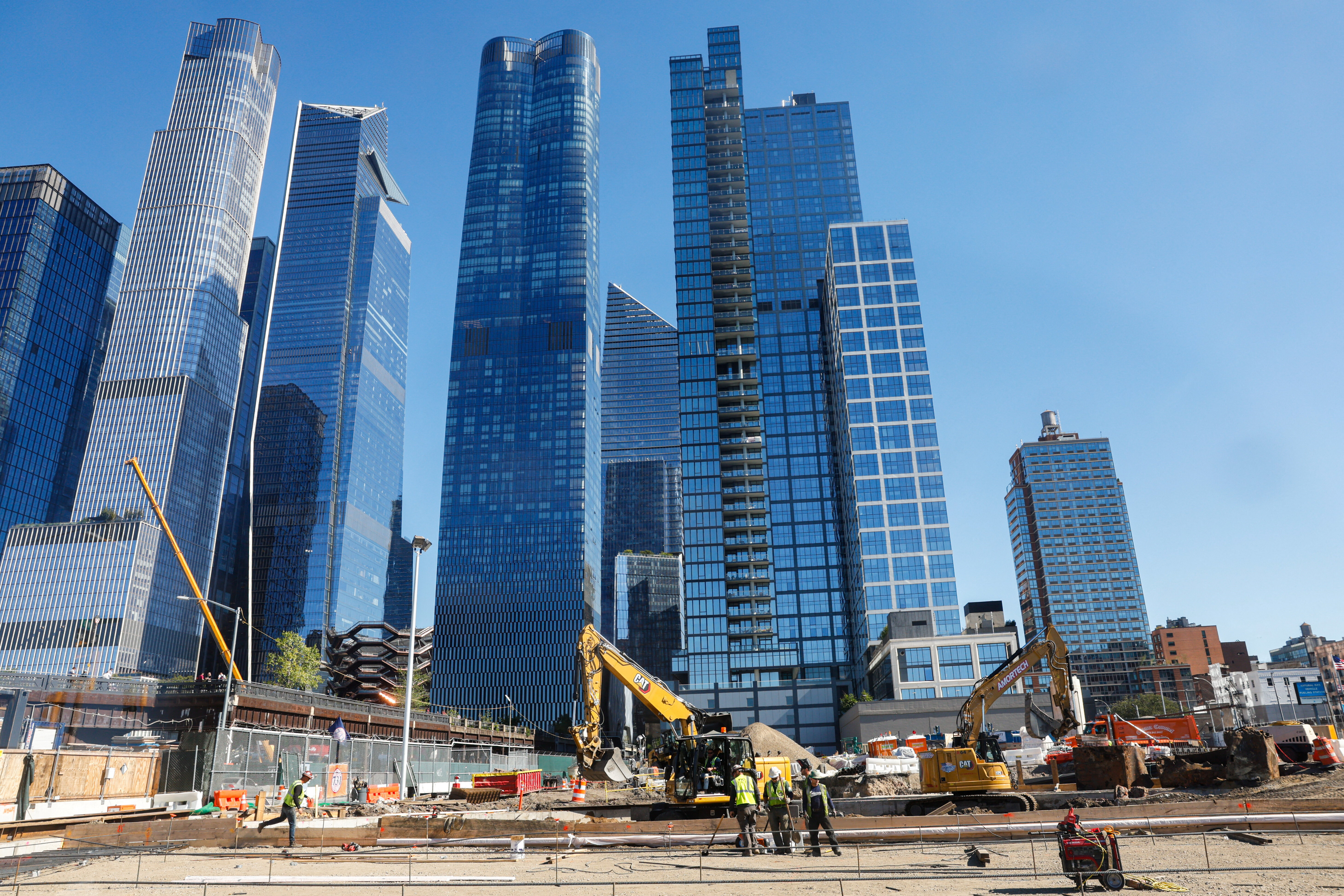Europe's schools and hospitals in urban heat islands, and other city-focused stories you need to read now

Paris is one European city which frequently suffers from heatwaves. Image: REUTERS/Sarah Meyssonnier
Jeff Merritt
Head of Centre for Urban Transformation; Member of the Executive Committee, World Economic ForumListen to the article
- This monthly round-up brings you some of the latest news on cities and urbanization.
- Top stories: Half of European schools and hospitals located on heat islands; World's most liveable cities revealed; House price fluctuations in China and Australia.
- For more on the World Economic Forum’s city-focused work, visit the Urban Transformation Hub.
1. Europe's city schools and hospitals at risk from extreme heat
With global temperatures in June reaching record levels and climate scientists warning that El Niño conditions are set to make 2023 one of the hottest years on record, "urban heat islands" are under the spotlight.
Around half of the hospitals and schools in Europe's cities are located on heat islands, created when temperatures in built-up areas are pushed up by roads, pavements and buildings absorbing heat from the sun.
The European Environment Agency (EEA) says 46% of hospitals and 43% of schools are in areas at least 2°C warmer than the regional average, meaning heatwave impacts will be much greater.
Blaz Kurnik, head of the EEA's climate adaptation department, told Reuters this would have "severe consequences" for human health, noting that the growing ageing population in more condensed cities was also contributing to vulnerability.
Some cities are already taking measures, such as introducing more cooling green spaces, and water can reduce the heat island effect. Paris, for example, is piloting a project to transform 10 schools' grounds into cooler, greener spaces, with fountains and drought-resistant plants.
There's also a growing number of Chief Heat Officers tasked with addressing the increasing health and economic risks associated with extreme heat.
Jane Gilbert, Miami's Chief Heat Officer, was the first person in the world to have that job title when she was appointed in 2021 - and now there are more than six, including a Global Chief Heat Officer.
2. The world's 5 most liveable cities revealed
Vienna has topped the list of the world's most liveable cities for the second consecutive year, with both Melbourne and Sydney featuring in the top five.
The Economist Intelligence Unit's (EIU) annual Global Liveability Index ranks cities on their stability, healthcare, culture and environment, education and infrastructure.
Globally, the average score has improved from 73.2 to 76.2 out of 100 in a year, with healthcare scores improving the most. Stability is the only indicator to see a drop, due to the cost of living crisis, rising unrest and crime rates in some cities.
Cities in Asia-Pacific have made some of the biggest gains, as their economies rebounded after the COVID-19 pandemic, while cities in Western Europe have slipped down the rankings, due to strikes and civil unrest.
Upasana Dutt, Head of Liveability Index at EIU said: “The removal of COVID-related restrictions has overall boded well for global liveability in 2023.
"Education has emerged stronger with children returning to schools alongside a significantly reduced burden on hospitals and healthcare systems, with some notable improvements in cities across developing economies of Asia and the Middle East.
"As the world’s political and economic axis continues to shift eastwards, we expect the cities in these regions to move slowly up our liveability rankings."
3. News in brief: Other top cities and urbanization stories this month
Travel to cities in the US is rebounding after the COVID-19 pandemic, according to data from a hotel analytics firm, with notable growth in Miami, Florida, and Austin, Texas. However, revenue per available room (RevPAR) was down 30% in May 2023 from the same month in 2019.
The prices of new homes in China rose at a slower pace in May, at just 0.1% month-on-month, compared to a 0.4% gain in March, according to Reuters calculations based on National Bureau of Statistics (NBS) data. The property industry is a key driver of the economy in China, but demand is down.
It comes as house prices in Australia rose for the third consecutive month in May, as demand remained strong in the face of high mortgage rates.
Meanwhile, Singapore now has the most expensive private homes in Asia-Pacific, with prices rising higher than those in Hong Kong, according to the Urban Land Institute.
Sweden is set to build the "world's largest wooden city" in a former industrial quarter of the capital Stockholm. Once built, “Stockholm Wood City” will have 2,000 homes, 7,000 office spaces, shops and restaurants, according to developer Atrium Ljungberg, which aims to break ground on the project in 2025.
How is the World Economic Forum supporting the development of cities and communities globally?
4. More on urban transformation on Agenda
In June 2022, after a decade of rejuvenation, Detroit was named the number one emerging start-up ecosystem in the world. Cities worldwide can look to Detroit as an example of a city that has navigated hardship and come out the other side stronger, and positioned to build a thriving, sustainable and innovation-positive economy, write Kofi Bonner, CEO of Bedrock and Bruce Katz, Director of Nowak Metro Finance Lab.
Big data analysis could help urban planners determine where best to place a community health clinic, identify the buildings consuming excess energy, or improve public transport operations to reduce waiting and travel times, and take measures to counter the spread of epidemics. The World Economic Forum has published a comprehensive manual for municipal governments and their partners demonstrating how data could address problems of urban governance.
UN-Habitat forecasts that, by 2050, three billion people will live in urban slums, with 50% of the growth in slum populations concentrated in eight countries: Nigeria, the Philippines, Ethiopia, Tanzania, India, the Democratic Republic of Congo, Egypt and Pakistan. It has called on countries to adopt policies that promote the construction of affordable housing and provide financial assistance to low-income households.









